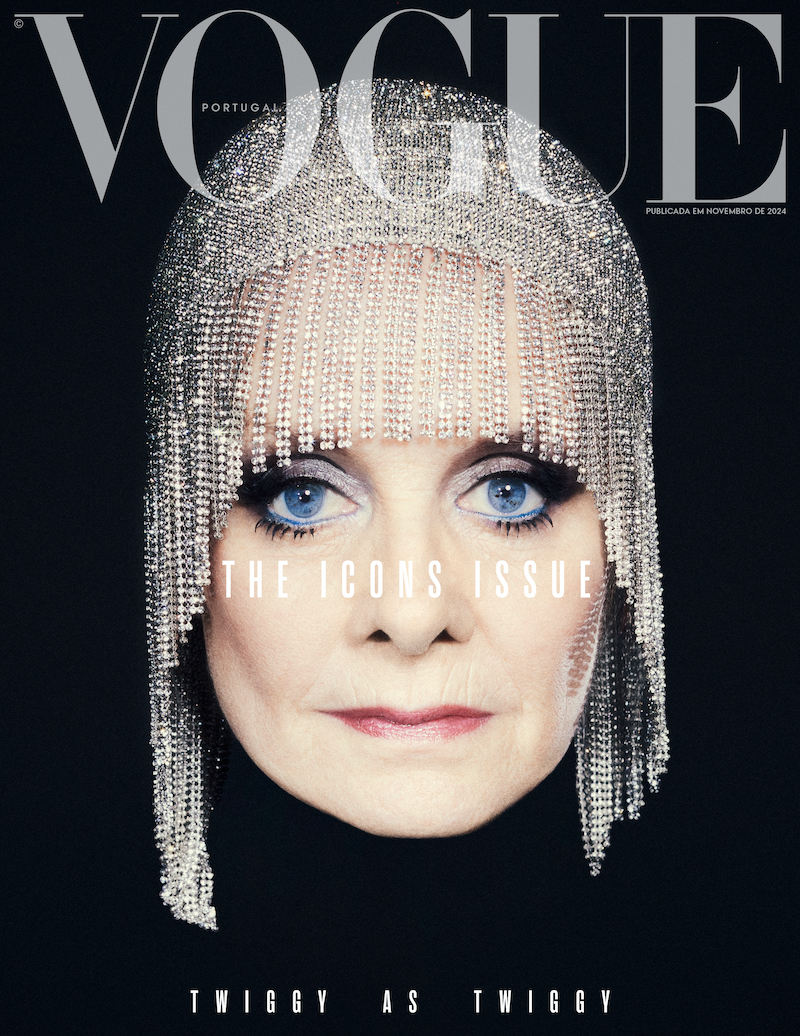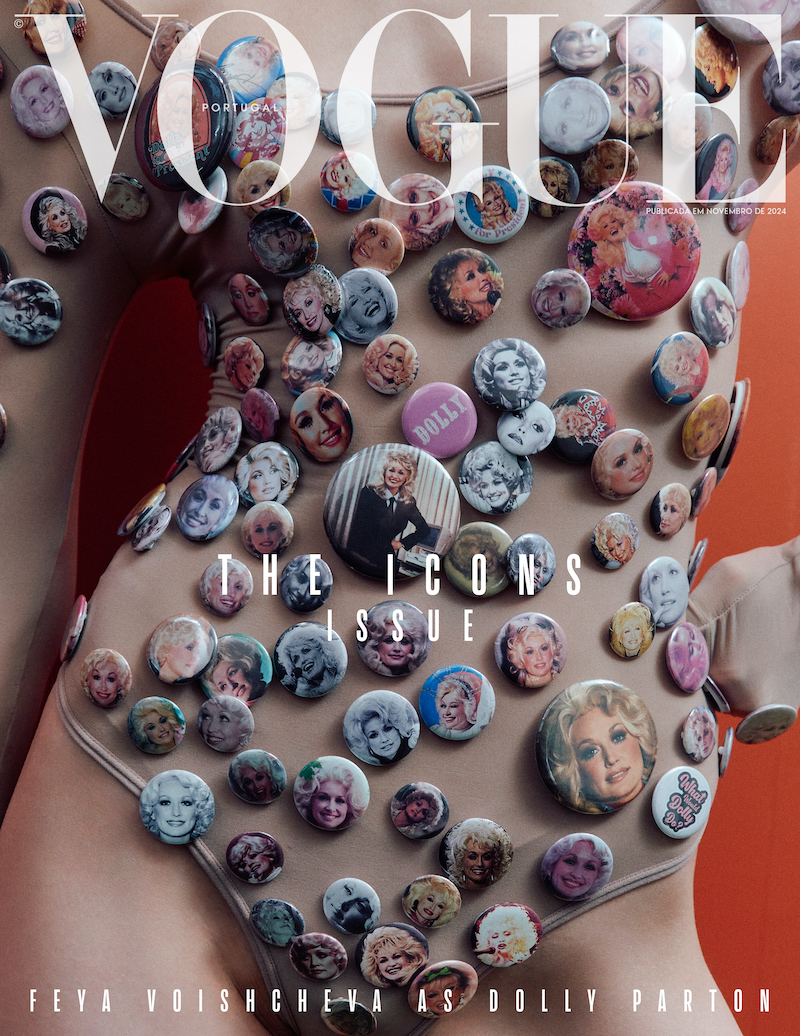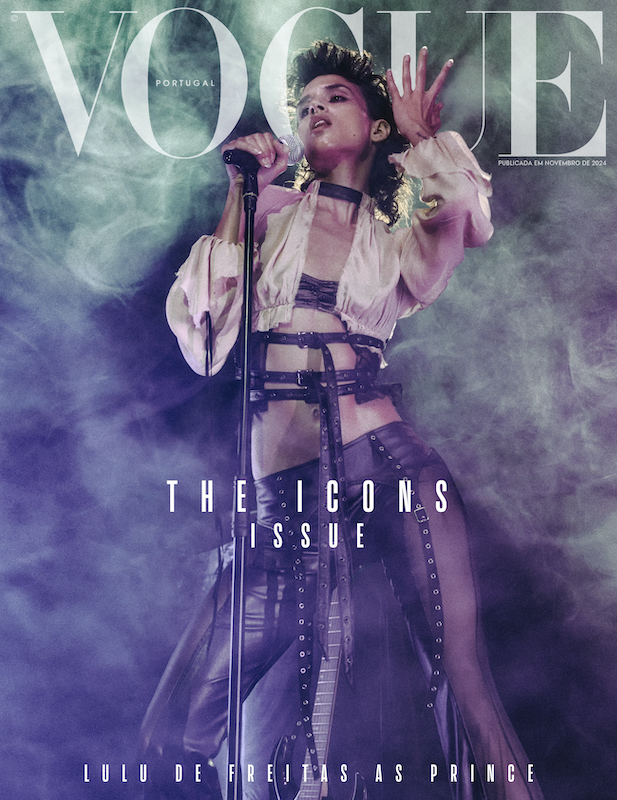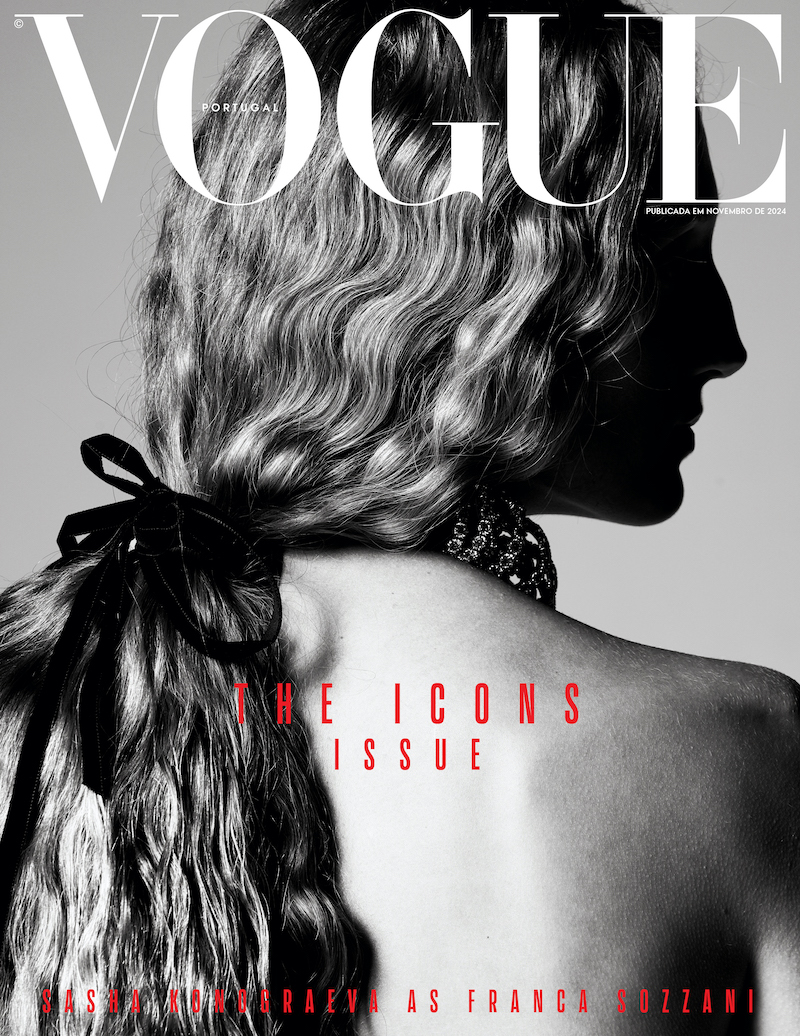© Rambo Ding
“Icon. What is an icon? When someone is iconic it means they have established a certain kind of legacy possibly, and I think it does come with time. It's something in the arts, I feel. Maybe not, maybe it doesn't have to be in the arts exactly. I'm not really sure. But I don't think you are born an icon.” - Diana Ross
During the making of this issue dedicated to icons, in the most diverse areas, questions and some discussions arose about who is or is not considered an icon. If some names are indisputably and universally considered iconic, others need more time to become recognized as such, however great they may be at the present time.

Twiggy as Twiggy
Rachell Smith
The word “icon”, of Greek origin (eikon), means “image” and came to specifically designate the genre of images produced for worship and religious cults in areas of Byzantine influence, with representations of Christ, saints and episodes from the Gospels of Old Testament. Throughout history, iconography provoked heated theological debates between the Roman Catholic Church and the Orthodox Church. In one of the many periods of iconoclasm, in 726, the Emperor of Constantinople restricted the cult of images, as it had reached extremes - such as the belief that images were of supernatural origin and not created by man. With the Council of Nicaea, in 787, the legitimacy of the cult of images was agreed between the two churches and allowed, until the following iconoclastic crisis

Feya Voishcheva as Dolly Parton
Matthieu Delbreuve
But the importance of the word icon, in origin and meaning, despite evolution and changing times, always refers to something or someone that is worshiped, an idol to be revered, a role model or exceptional talent, a hero. And the adjective iconic should really describe an icon. But the connotation changed and became very "elastic" and frivolous, in my opinion. Nowadays, it's ironic how everything can be called iconic: a person, place or thing — or product — can bear the label of “iconic” simply because it is extraordinary, that is “out of the ordinary”, like even a prototype! A new or recently launched product cannot be iconic, no matter how wonderful, impactful or original it may be. Or a new musical release, a new collection from a designer, the recently Oscar-winning actor, no matter how much they’re the buzz of the moment, universally applauded or blowing up in social media. Time, legacy, influence that survives generations are some of the conditions for the "certification seal" of something or someone that can be considered truly iconic. The pace we currently live in, the speed of social networks and the dizzying speed with which new images and messages spread easily creates the illusion of new idols and products that seem to last forever. But very little resists the passage of time and the dictatorship that creates and undoes idols in the blink of an eye.

Sara Giacomini as Bette Davis
Bohdan Bohdanov
History has proven that artists or works, not respected or acclaimed in their time, became iconic decades or hundreds of years later, as well as the opposite, names that today are no longer remembered by anyone despite having probably been the people most influential and powerful at a given moment in the past.

Lulu de Freitas as Prince
Élio Nogueira
Nothing and no one is born an icon. But every day potentially iconic people or ideas are born that only History will reveal.

Sasha Konograeva as Franca Sozzani
Jesús Isnard
Translated from the original in Vogue Portugal's The Icons Issue, published November 2024. Full story and credits in the print issue.
Most popular

O que lhe reservam os astros para a semana de 27 de janeiro a 2 de fevereiro
27 Jan 2026
.jpg)
Relacionados
.jpg)
Armani, Annie Hall e um guarda-roupa vintage: uma antevisão exclusiva de O Diabo Veste Prada 2
02 Feb 2026

.jpg)




 (17).png)
